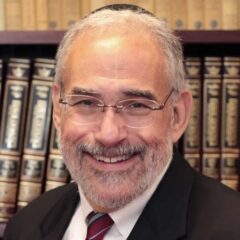
(RNS) — Two years of war in the Middle East has changed how Americans feel about Israel, surveys say, and how American Jews in particular feel about Israel’s leadership. It has changed how students feel on university campuses and those campuses’ relationships with the federal government.
It stands to reason that the war will also have changed how American Jews, Muslims and Christians feel about each other. In reality, though, how the events of Oct. 7, 2023, and the Gaza conflict changed interfaith relations in America can be summed up in three words: not at all. But that is not a good thing.
The events of Oct. 7 and the ensuing bloodshed have accelerated a troubling decades-old trend in interfaith engagement in which alliances are formed between people of different faiths who agree on politics and whose politics shape the various views of the God they worship.
That is what happens when politics becomes the new religion, as it has for almost everyone in America.
The fights people used to have about who we could or should marry, who we could count as friends, what our futures depended on used to be largely faith-fueled fights. They were animated by the language of good and evil, and the “right” answers were defined along religious lines. Now, those fights, and the language that accompanies them, are driven more by political ideologies. Religion simply supplies convenient footnotes for those who want them, on whatever side of the issue they happen to stand.
To put it more bluntly, for most Americans, religion is politics in drag.

A student wrapped in an Israeli flag listens to pro-Palestinian protesters gathered on campus at the University of Texas at Austin, April 30, 2024. (AP Photo/Eric Gay)
Were it otherwise, Americans would see differences in faith as wedge issues when it comes to choosing life partners or how we see the future, but increasingly that is not the case. Those issues are now much more a function of political differences and party affiliation than spiritual identity or denominational affiliation.
The trend is demonstrated by the fact that more than 80% of currently married couples in the U.S. vote along the same party lines, while an almost equal percentage are in mixed-faith families. Two decades ago, those percentages were closer to being the reverse.
Were it otherwise, the U.S. ambassador to Israel, Mike Huckabee, an evangelical Christian pastor, would not be an ally of Israel’s Religious Zionist party leaders such as Bezalel Smotrich and Itamar Ben-Gvir. That they are such allies is possible because the politics they share speaks with greater force than the faith they do not.
At the other end of the political spectrum, similar alliances exist between radically secular anti-Zionist Jewish organizations and faith-based Christian groups, whose anti-Zionism is driven by their understanding of how God calls them to be in the world. (The rejection of Zionism has even led some Hasidic groups to be allied with the most virulently anti-Israel Palestinian groups.)
In all of these cases, the participants’ understandings of faith are not only different, but often mutually exclusive, and yet they forge alliances around political issues with no effort or theological struggle. By whatever name they call upon God, or understand God’s will, they are certain that the God upon whom they call shares their political goals, and because of that, all meaningful religious difference is swept away.
This state of affairs is bad for religion and bad for politics, and it robs us of the rich and desperately needed value of more serious interfaith relations.
Don’t get me wrong — any time people can reach across boundaries, religious, political or otherwise, without feeling that they have given up their integrity, we are all better off. But when the reaching across one set of fanatically held boundaries from the past is done only to instantiate another equally hard-edged ideology, nothing gets better. One could argue that things actually get worse, as we congratulate ourselves for building bold and boundary-crossing relationships, ignoring the fact that we only cross those boundaries to congratulate one another on how right we are because we are really the same, and “God is with us.”
That the war has made all this worse is not at all surprising. When people feel attacked, they typically rely on three responses: fight, flight or freeze. The fighting is obvious, and yet to be truly resolved. The flight into ideological silos is equally clear, as is the freezing: Our ability to create relationship depends less on agreement and more on allowing ourselves to see and recognize the full dignity of those with whom we disagree.
That is where a more profound interfaith encounter could play a new and constructive role.
Imagine if people of different faiths gathered not to confirm that their different Gods share the same politics, but to explore the ways their infinitely wise traditions have room for multiple politics and competing political views. Imagine people of different faiths gathering not to proclaim uniform political conclusions based on different religious footnotes, but instead to explore how people of different faiths could lead an interfaith movement for better, healthier and more constructive interpolitical engagement.
Imagine if interfaith engagement turned from alliance building among people who worship differently because “ultimately we are all the same,” as it too often goes now, to interfaith engagement as an opportunity to deepen genuine relationships with those who are genuinely different.

Rabbi Brad Hirschfield. (Courtesy photo)
None of us will be able to do that with everybody, nor, in all candor, should we. But we all could do it more, and more often, and in so doing, interfaith engagement could renew itself in ways that could help heal the entire world.
(Rabbi Brad Hirschfield is president of Clal — The National Jewish Center for Learning and Leadership. The views expressed in this commentary do not necessarily represent those of Religion News Service.)
